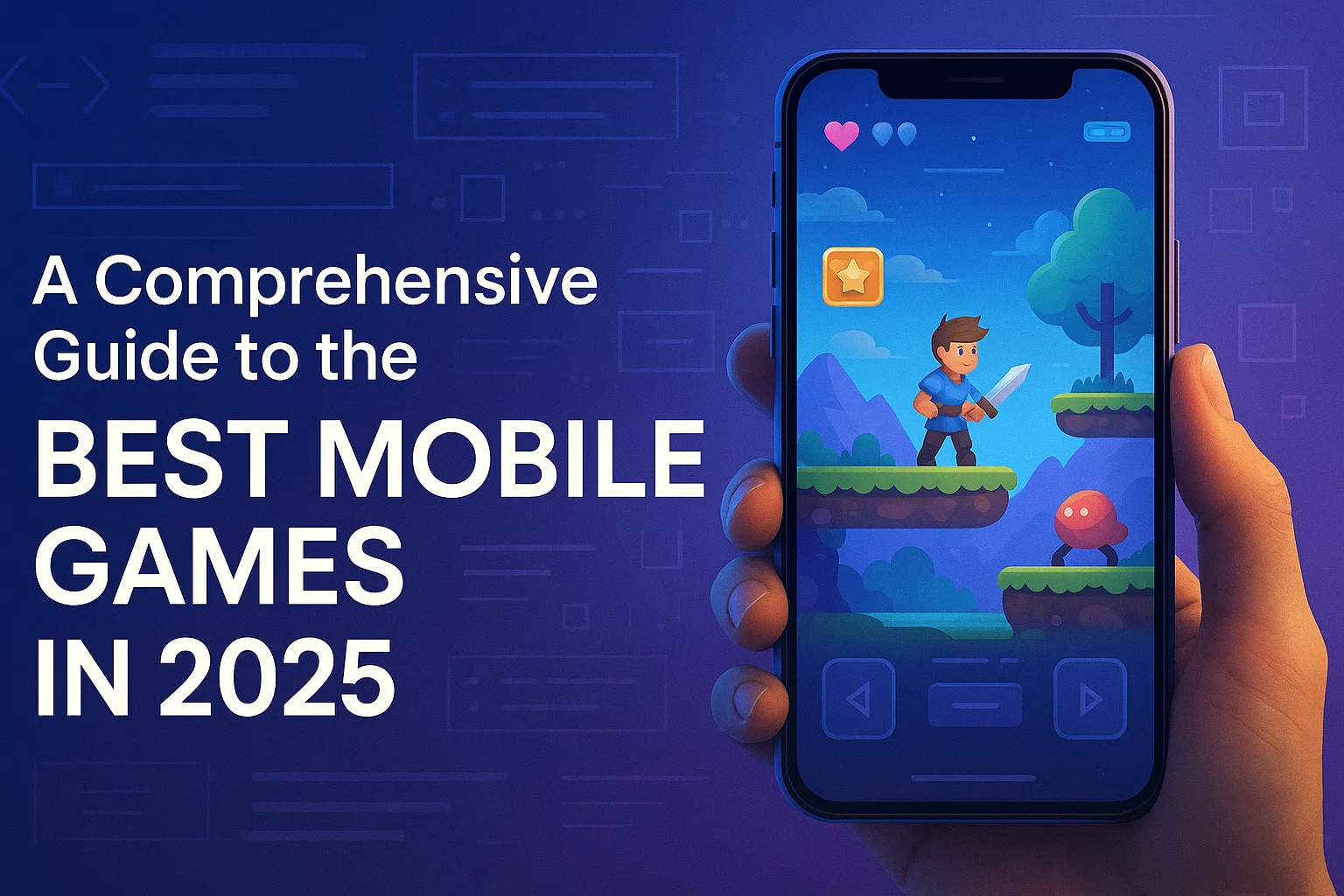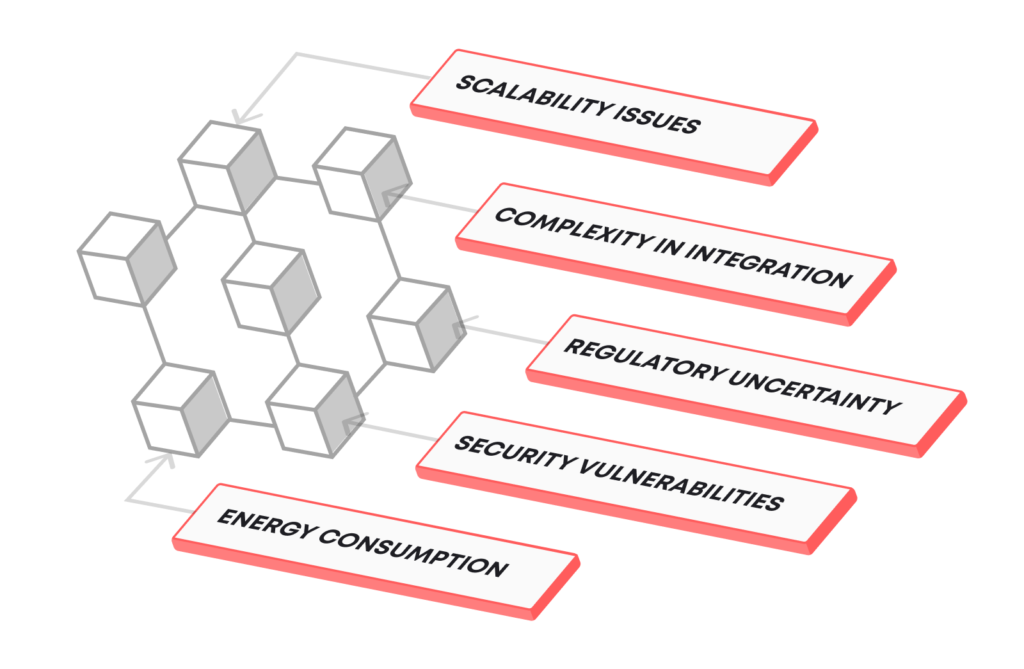
Integrating Blockchain Technology in Mobile App Development

Blockchain technology integrated into mobile applications creates industry changes through its capability to enhance security features and provide transparency and decentralization benefits. From secure payments to data protection, blockchain empowers mobile apps with trustless, tamper-proof functionality. Understanding blockchain operations in mobile ecosystems has become essential to business developers who explore this innovative technology.
Blockchain technology integrated into mobile applications creates industry changes through its capability to enhance security features and provide transparency and decentralization benefits. From secure payments to data protection, blockchain empowers mobile apps with trustless, tamper-proof functionality. Understanding blockchain operations in mobile ecosystems has become essential to business developers who explore this innovative technology.
Blockchain technology has disrupted multiple business domains from finance and healthcare to supply chains and gaming because of its decentralized operational framework. The widespread use of mobile applications now integrates blockchain technology for delivering better security and improved privacy with efficient transaction capabilities.
This article covers how blockchain benefits mobile apps, its uses, integration steps, challenges, and future trends.
Understanding Blockchain Technology
Blockchain is a secure, decentralized technique for storing transaction data in numerous locations. Each transaction is encrypted and cannot be changed, guaranteeing maximum security and transparency. Because there is no central authority, it is extremely resistant to fraud and security dangers, making it an excellent addition to mobile apps.
The main components of blockchain are:
- Decentralization: Blockchain disperses data among several nodes, in contrast to conventional databases that depend on centralized servers.
- Immutability: Data integrity is ensured since once a transaction is recorded, it cannot be changed.
- Transparency: Accountability is encouraged as all authorized parties may see transactions.
- Cryptographic Security: Digital signatures and encryption shield transactions against unwanted changes.

Benefits of Blockchain in Mobile Applications
1. Enhanced Security
The main benefit of integrating blockchain into mobile applications is their heightened security capabilities. User information stored in traditional mobile applications becomes vulnerable to breaches because applications maintain centralized server data storage. The cryptographic methodologies in blockchain systems establish a mechanism to preserve data authenticity along with authorizing access to protected information.
Since data is stored across a decentralized network, attackers cannot alter records without network consensus, making mobile apps far more resilient against cyber threats.
2. Transparency and Trust
Blockchain technology provides real-time transaction verification capabilities which allow every authorized party to view accurate documentation records. The entire blockchain registry exists for everyone to observe so authorized parties can build trust through visibility.
This is particularly highly advantageous for financial applications because it ensures open records that stop financial disputes and fraud activities.
3. Decentralization
Traditional software solutions store their data in centralized servers yet this storage practice introduces security and operational risks when servers fail or undergo attacks. Data spread throughout multiple locations using blockchain technology creates applications that become highly secure yet reliable and fault-resistant. The decentralized platform cuts down business costs while simultaneously reducing dependency on third-party service providers to achieve better operational efficiency through minimized middlemen processes.
As a result, mobile applications can run more smoothly while offering better security and performance.
4. Efficient Payments and Transactions
Mobile applications integrated with blockchain can leverage cryptocurrencies and smart contracts for instant, low-fee transactions. Payment apps utilizing blockchain can process cross-border transactions without intermediaries, reducing transaction costs and processing times.
Money transfer apps including PayPal and Venmo depend on banking institutions to execute transactions which creates time delays and incurs fees to users. Blockchains made payment apps capable of performing quick person-to-person financial transfers that limited fees to the system.
5. Improved User Privacy
Privacy concerns have become a significant issue in mobile applications. Blockchain allows users to control their own data rather than relying on centralized storage systems.
Through decentralized identity management systems users gain protection against data exploitation by corporations and hackers. Users maintain enhanced privacy control through their ability to offer or withdraw access permissions to their data.

Key Use Cases of Blockchain in Mobile Applications
1. Cryptocurrency Wallets
Blockchain-based wallets that enable safe storage, sending, and receiving of cryptocurrency include Coinbase, Trust Wallet, and MetaMask. Blockchain encryption techniques are used by these wallets to protect digital assets against fraud and online attacks.
2. Decentralized Finance (DeFi) Apps
DeFi applications replace banks as financial institutions so users can engage in digital asset lending while borrowing funds and stake their assets through decentralized trading interfaces. Apps like Aave, Compound, and Uniswap leverage blockchain to offer financial services without intermediaries, providing users with greater financial control.
3. Supply Chain Management
By verifying authenticity and tracking items in real-time, blockchain-based smartphone apps improve supply chain transparency. Platforms such as VeChain and IBM Food Trust employ blockchain technology to expedite deliveries and eliminate counterfeiting.
4. Healthcare Applications
Blockchain keeps medical records safe through a security architecture that enables protected access to legitimate repository systems. Healthcare mobile apps use blockchain to prevent unauthorized access, manage patient consent, and facilitate seamless data sharing between providers.
5. Gaming and NFTs
Blockchain has revolutionized gaming by enabling secure in-game purchases, digital ownership, and play-to-earn models. Mobile games utilizing NFTs enable users to possess as well as securely exchange their own distinctive digital items.

Steps to Integrate Blockchain into Mobile Applications
1. Choosing the Right Blockchain Platform
Selecting the appropriate blockchain platform depends on the application’s needs. Popular choices include:
- Ethereum: Ideal for smart contract applications and DeFi platforms.
- Binance Smart Chain (BSC): Offers lower fees and faster transactions.
- Solana: Known for high scalability and low-cost transactions.
- Hyperledger Fabric: Suitable for enterprise-level solutions.
2. Defining Smart Contracts
Smart contracts run automated agreements through transactions that function without requiring human supervision. Developers can use Solidity (Ethereum) or Rust (Solana) to create self-executing contracts that enhance security and efficiency.
3. Using Blockchain APIs
Developers can integrate blockchain functionality using APIs and SDKs from platforms like Infura, Alchemy, and Moralis. These tools simplify blockchain interactions and enhance app performance.
4. Implementing Wallet and Payment Features
Smooth blockchain transactions are ensured by integrating cryptocurrency wallets like MetaMask or Trust Wallet. Multiple cryptocurrency compatibility and quick and affordable digital payments are features of secure payment gateways.
5. Ensuring Security and Compliance
Using encryption, multi-signature authentication, and security audits helps shield mobile apps built on the blockchain from security flaws. The legal and regulatory standards pertaining to blockchain technology should also be adhered to by developers.
Challenges of Blockchain Integration in Mobile Apps

1. Scalability Issues
Blockchain networks, particularly those like Ethereum, frequently have slow transaction speeds and high costs. Layer 2 scaling (Polygon, Optimistic Rollups) can assist address these concerns.
2. Regulatory Uncertainty
The use of blockchain technology and cryptocurrencies continues to adapt to new regulatory frameworks that operate throughout the world. Developers need to monitor current regulations for blockchain development to maintain legal operations.
3. User Adoption and Education
The adoption of blockchain remains difficult because most users do not understand its underlying technology. Mobile applications must provide user-friendly interfaces and educational tools alongside a smooth user journey to reduce knowledge barriers.
4. Integration Complexity
Integrating blockchain functionality requires expertise in smart contract development, cryptographic security, and decentralized architectures. Partnering with blockchain developers can simplify the process.
Future of Blockchain in Mobile Applications
The future of blockchain in mobile apps seems promising, with increased security, efficiency, and decentralization. As Web3 expands, firms such as VrdApps will leverage blockchain to improve secure identity management, transparent financial transactions, and secure data storage, therefore making mobile applications more dependable and usable.
Emerging Trends:
- Metaverse Integration: Blockchain-powered mobile apps will enable digital economies in virtual spaces.
- Decentralized Identity (DID): Users will have complete control over their digital identities.
- AI and Blockchain Fusion: AI-driven blockchain applications will improve security, fraud detection, and automation.
Conclusion
Integrating blockchain technology into mobile apps enhances security, transparency, and efficiency. It is transforming sectors including banking and supply chain management by enabling safe and decentralized operations. As more organizations use blockchain, firms like VrdApps can set the standard for developing creative and dependable mobile applications in the future.


